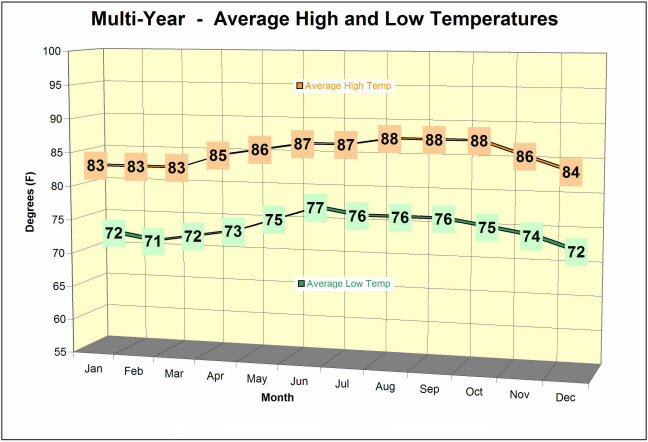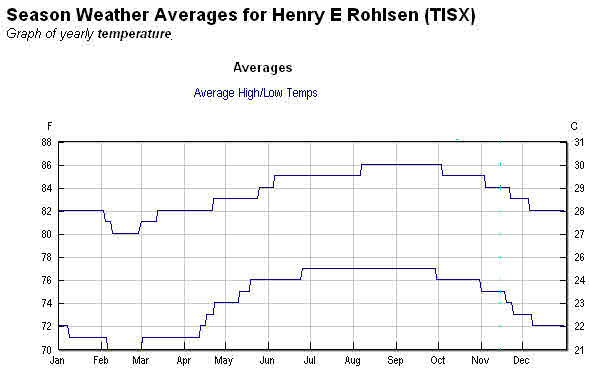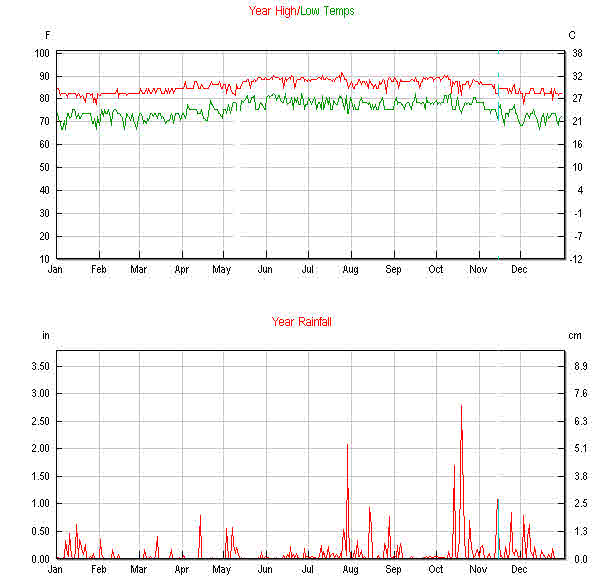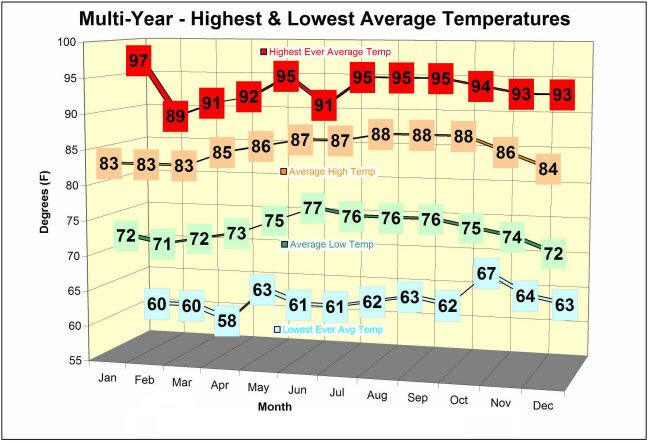
5000 Estate Coakley Bay
Christiansted, VI 00820-4598
Copyright, License, Disclaimer
The Weather |
|||||||||||||||||
|
Most of the year the weather on St. Croix is downright boring....sun, sun, and more sun...and an agreeable mix of bright blue skies and fresh breezes. St. Croix's weather is controlled by the huge mass of the ocean which surrounds it, so temperatures change very little from day to day or even month to month -- although in the early Fall (mostly Sept. - Oct.) there can be the threat of tropical storms or hurricanes--and in the Summer months the direct Sun is quite intense. Daytime averages in the winter and night-time averages in the summer hover in the 70s. Warm summer days may reach into the 90s with averages around 88, while occasionally chilly winter evenings can dip into the high 60s. But (as the second chart below demonstrates) such extremes are very unusual.
Actual Year of Recorded Data
Multi-Year - Average Highs & Lows
St. Croix weather does have a rainy season during September and October. July and August are quite hot in the direct sun; but tropical showers are famous for starting and stopping so fast that people barely have enough time to gather up their towels and scurry off the beach. Rain is actually welcomed during this time of the year. Trade winds blow off the water, providing a continuous stream of cool breezes best felt near open strips of beach -- and in higher elevations. Highest and Lowest Temperatures and Rainfall Ever Recorded
1 Year's Temperature and Rainfall
The Sun and the Tropics The Sun is always directly overhead exactly one point on the Earth -- and that point is always between the two "Tropic" lines. Through the year the Sun moves from directly above the Tropic of Cancer on June 21st or 22nd to directly above the Tropic of Capricorn in the Southern Hemisphere on December 21st or 22nd. As it moves North leading up to June 22nd, it passes directly overhead the US Virgin Islands within a day of May 9th. When it starts back to the South, it passes directly overhead within a day of August 1st.
Hurricanes Unlike twisters in the Midwest, hurricanes rarely cause the loss of life in the U.S. Virgin Islands. Even when the infrequent huge system such as Hugo (1989) hits, there are very few serious injuries or casualties. For more information, click HERE. | |||||||||||||||||
ST. CROIX WEATHER LINKS
|





